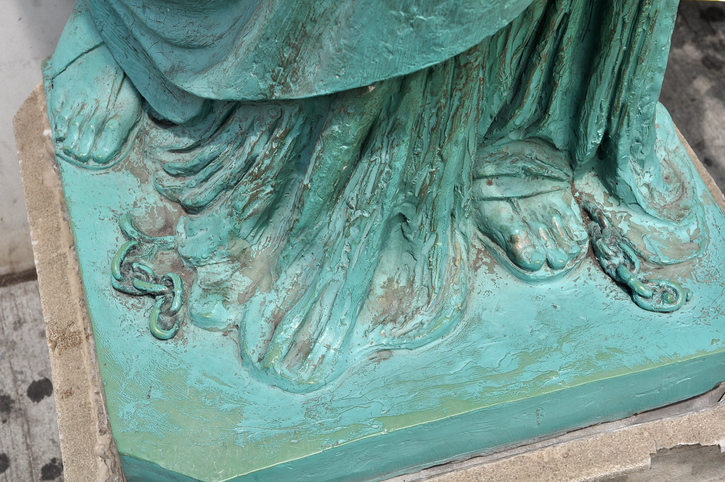
Independence Day can be pleasurable for some and a cold reminder of a hard truth for others. Majority of America takes the federal holiday off from work to grill, go to the pool, find a day party to wear their best red, white and blue outfit to or simply use the day to reflect on living in what some would call the greatest country in the world. Others will argue that we’re living in times of turmoil, and letting off fireworks for fun here in our country while the government is letting off bombs in another country doesn’t seem like something worth celebrating. For Black America, it can feel like a triple whammy.
Take the history of the Statue of Liberty for example, easily the greatest symbol of our freedom and independence and a diverse nation. Sure, it’s a monument that all immigrants can look to for inspiration, but rarely is it included when the story of Lady Liberty is told about the shackles at her feet that originally were meant to hang from her hands as a direct call to the end of slavery in America.
Let the astounding Dr. Joy DeGruy break it down for you below in a clip taken here from interview earlier this year on the Vault Empowers podcast hosted by Brandi Harvey:
RELATED: Rap Songs That Hit Different on the 4th of July
It’s almost impossible to believe that so many, particularly African American New Yorkers, are completely unaware of what the Statue Of Liberty truly stands for. It’s why entertainers who use their platform for change like Beyoncé are so appreciated in the culture. Many might’ve saw her Lady Liberty-inspired Cowboy Carter Tour outfit at Stade de France in Paris as just another eye-grabbing concoction by Balmain. King Bey’s mind works different though, as she purposefully wore gold bagels around her wrists and gold Amina Muaddi shoes on her feet to signify that aforementioned oversight while also paying respect to the French sculptor who designed it as a gift for America. It’s been heavily rumored that his original design of the woman at the center of it all was envisioned with more African features.
Overall, knowledge will always equal power when it comes to our culture. It may not mean much to many, but simply acknowledging those chains — even if you have to squint and jump to see them! — can be a catalyst to discovering even more about the richness and strength in being Black.

